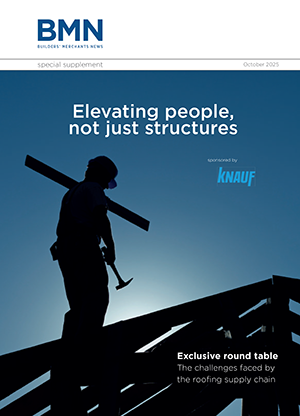For many field sales representatives in the construction sector, CRM has traditionally been perceived as a burden.
All too often, sales staff have seen taking time between meetings to boot up their laptop and key a report into the CRM system as wasted time that could be spent doing what they do best – selling.
As such field sales staff tend to do all their CRM reporting at the end of the day, or at the end of the week, month or even quarter, severely degrading the quality and value of the data entered.
To compound the problem, that data then becomes difficult to use while on the move, making it challenging and time consuming to track progress or make calls in between prospect meetings, making the system seem even more redundant to them.
The end result is that a builders’ merchant’s field sales force has fewer tools and less information to help them do their job, and sales managers and directors have limited insight into their sales team performance and activity.
While office-based sales teams have had access to a wealth of customer knowledge and sales resources, enabling them to share information to track progress, schedule calls and provide detailed reports to sales managers and directors, those on the road have, by and large, been left to rely on their own skill to manage relationships with customers, with technology being seen as a back-up rather than a crucial weapon.
This situation has only been made worse by the slow response of the major CRM providers to the emergence of mobile technology and an increasingly mobile workforce. The initial moves to provide mobile-optimised versions of their desktop software failed to deliver a truly useful solution for field sales teams.
As everyone in the construction industry knows, poor equipment makes it much more difficult to do your job. The lack of user-friendly and suitable tools for field sales representatives has presented two key problems for building merchants. Firstly, they have been unable to provide the same quality of supporting tools to their field sales force as they do for office-based staff, leaving them devoid of key resources to drive sales.
Secondly, if field sales representatives are unable to report on the go via their mobile devices, this leaves sales directors and managers with limited insight into the activity of their sales force. The time lapses between meetings and reporting also mean that this information is often of poor and inconsistent quality, hampering builders’ merchants’ ability to monitor sales performance and provide targeted support and resource to the staff that require it the most.
This combination of poor tools and lack of information for performance measurement is preventing builders’ merchants from unlocking the full potential of mobile technology.
In the next blog, I’ll look at how new mobile CRM systems can help builders’ merchants to get the best out of their field sales force and maximise sales opportunities.
Javier Peralta is UK country manager for ForceManager.







